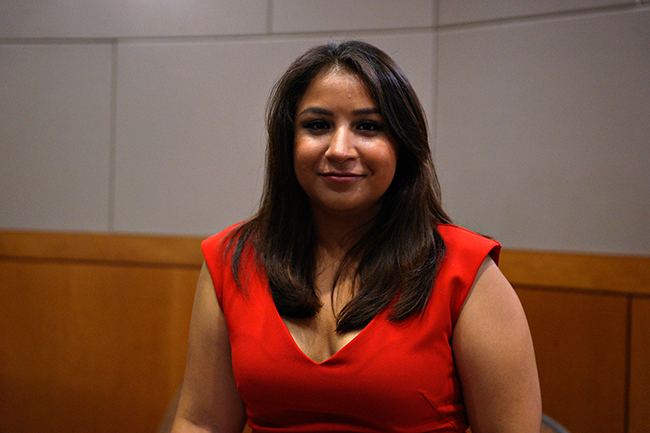Minority communities are often left out of conversations about mental healthcare due in part to a stigma, Dior Vargas said at a lecture Monday.
Vargas, a Latina feminist and mental health advocate, spoke about the intersection of mental health and race by detailing her personal experiences with suicidal thoughts during a lecture hosted by UT’s Counseling and Mental Health Center as a part of Suicide Prevention Week.
Katy Reed, assistant director for prevention and outreach at the CMHC, said the goal of Suicide Prevention Week is to raise awareness about suicide and mental health on campus to start conversations among students and to encourage them to seek help.
“We think [Vargas’] People of Color and Mental Illness photo project is a great way to bring awareness to our students that mental illness is really an issue that affects everybody,” Reed said.
Vargas said she works to change the perception of mental illness within “communities of color.” The combination of racism and the collection of individual biases influence diagnosis rates, according to Vargas.
“The reason why there are so many misdiagnoses or severe diagnosis when it comes to people of color is because there is this institutionalized racism and the intersectionality of people’s experiences,” Vargas said.
Mishelle Verduzco, international relations and global studies sophomore, said she is interested in the role race plays in mental healthcare and the stigmatization of mental health among minority communities.
“There is a huge stigma in the community of color against mental health, and we really need to break that down and talk about it,” Verduzco said.
“[Depression] really is not thought of as an illness that people of color can get. … We need to stop thinking like that and actually realize that people of color do have mental illness, and we need to treat it.”
Vargas said it is important to be a self-advocate and said conversations in the mental healthcare system need to be more inclusive of minorities.
“If [people of color] don’t have access to the care, then how will they feel like they can go ahead and get that care?” Vargas said. “I’m just pointing out the things that need to change — like the language that we use — to ultimately remove the stigma.”





















